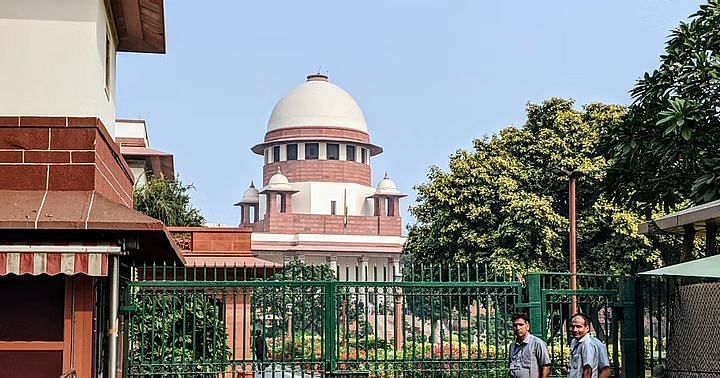[ad_1]
The Securities and Exchange Board of India need not disclose information relied upon for a show-cause notice if the same is not relied on for inquiry, the Supreme Court has held.
The apex court has distinguished between two stages of the regulator’s adjudication process. First, appointment of the adjudicating authority. And second, initiating an inquiry.
At the first stage, as per rules, the regulator is required to form an opinion if the case merits the appointment of an adjudicating authority. SEBI may rely on certain documents to form this opinion.
At stage two, if the regulator decides to proceed, a show-cause notice is issued. Decision to proceed or not with the inquiry is on the basis of the response to this notice.
The question before the apex court was whether the regulator is required to disclose documents relied upon at stage one.
It was raised by Religare Finvest Ltd.’s managing director and chief executive officer Kavi Arora in November last year after receiving a show-cause notice from SEBI. The notice was basis an investigation conducted by SEBI-appointed forensic auditor. As per the notice, Rs 2,315 crore was diverted from Religare Finvest for the ultimate benefit of promoters of Religare Enterprises Ltd. and RFL.
Arora’s ask was to disclose the information basis which SEBI had decided to appoint the adjudicating authority. He alleged that many documents relied upon in the show-cause notice were not shown to him.
SEBI shared some documents while refusing to share others, which according it, were internal or confidential or affected the confidentiality of third parties.
When contested before the high court and the apex court, SEBI argued that formation of opinion is not a formal inquiry proceeding involving any person or persons against whom inquiry is contemplated. And so, participation of the person against whom inquiry is contemplated is not necessary.
The regulator forms its opinion based on whether there are prima facie materials or grounds for initiation of inquiry. The actual inquiry, as per the regulator, begins with the issue of show-cause notice. After reviewing this response, if the adjudicating authority decides to proceed, an opportunity is given for a personal hearing. The regulator had also submitted in court that it will not rely on any document apart from those which had been provided to Arora.
Both the Bombay High Court and the Supreme Court upheld SEBI’s approach. Pointing to the regulator’s adjudication rules, the apex court said that the documents relied upon for formation of opinion are not required to be disclosed unless relied upon in the inquiry.
Since the opinion relied on for the issue of SCN has no bearing on the inquiry, there is no need to hear the party personally, the apex court said. There is no procedural impropriety in the issue of notice or scheduling of the hearing, the court held.
[ad_2]
Image and article originally from www.bqprime.com. Read the original article here.

